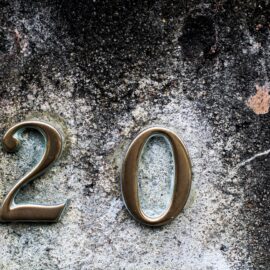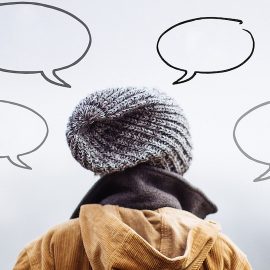

This article is an excerpt from the Shortform book guide to "No More Mr. Nice Guy" by Robert Glover. Shortform has the world's best summaries and analyses of books you should be reading.
Like this article? Sign up for a free trial here .
Are you looking for a review of No More Mr. Nice Guy by Robert Glover? What is the context behind the book? How was it received?
Throughout his time as a marriage and family psychotherapist, Dr. Glover noticed a trend among dissatisfied men: Although they consider themselves kind, generous people, they fail to see their efforts turn into a fulfilling life. In No More Mr. Nice Guy, Glover guides you through understanding and overcoming the Nice Guy mindset.
Keep reading for a full review of No More Mr. Nice Guy, including context and reception.
Review of No More Mr. Nice Guy by Robert Glover
Do you pride yourself on being the nicest guy in the world? Does your fear of disapproval lead you to people-please, avoid conflict, and repress parts of yourself? If this sounds like you, you might be what Dr. Robert Glover calls a Nice Guy.
Here’s our full review of No More Mr. Nice Guy, starting with the context of the book:
The Book’s Context
The negative connotation around “nice guys” existed long before NMMNG. In fact, there’s an entire Wikipedia page dedicated to the term and the various studies, perspectives, and stereotypes it’s spawned since the mid-20th century.
For instance, you’re probably familiar with the idiom “Nice guys finish last.” This phrase has existed since the 1940s and, although it was originally in reference to playing nice in baseball, it’s since come to encapsulate many of the negative stereotypes associated with the success and dating lives of nice men (such as being pushovers or generally bad with women). Even Glover plays with this phrase in his online class, “Nice Guys Don’t Finish Last, They Rot in Middle Management.”
Starting in the 1990s, sociological and psychological studies began examining the general success (or failure) of men best described as “nice.” These studies were usually based upon women’s opinions of different types of men. For example, one 2003 study wanted to understand why some women say they want a “nice guy” but end up pursuing those who possess other (maybe not-nice) traits. (The study found that women looking for long-term relationships prioritized nice men and those looking for casual hookups prioritized attractive men.) However, these studies mostly failed to define a “Nice Guy,” as its meaning often depended on the subject’s interpretation of the term.
Unlike these studies, Glover approached Nice Guys from a self-reflective, distinctly male point of view. Rather than scrutinize women’s opinions, he tapped into his psychotherapist background and turned instead to Nice Guys’ opinions of themselves and how that affects their approach to life. Today, our popular understanding of what constitutes a “Nice Guy” (in the negative sense) aligns closely with Glover’s definition.
Within the online manosphere, two texts pop up again and again as required reading for men seeking to improve themselves by fully embracing themselves and their masculinity: NMMNG and David Deida’s 1997 The Way of the Superior Man.
Although both authors acknowledge that men lose their way when they repress their true selves, Glover spends more time discussing the traits, origins, and recovery process of Nice Guys (aka “Non-Superior Men”). Deida, on the other hand, focuses more heavily on the inner, spiritual life of the Superior Man (aka Ideal Man) and how it affects his world approach.
Because these texts have equally influenced men’s movements of the 21st century (and overall discussions about masculinity), we will continue to compare and contrast their messages throughout this guide.
The Book’s Impact
The fact that Glover was able to quit his private practice as an LMFT and focus on helping Nice Guys full time (and continues to do so almost two decades later) shows how much of a community has arisen around his program. However, despite Glover’s good intentions and desire to help men become more self-accepting and less bitter—particularly towards women—the online communities that have formed around male-centric texts like NMMNG and Superior Man have taken on a life of their own.
The most controversial of these communities is arguably “The Red Pill.” Deemed so offensive by Reddit that the forum has been quarantined since 2018, this community of men believes women—especially feminists—have stripped all men of their masculine identity. More specifically, the community discusses “sexual strategy” and rigid gender roles.
Despite the fact that Glover actively criticizes Nice Guys who are resentful and furious towards women, many of the men in this community adopted his book as gospel, interpreting it in ways that aligned with their views. For example, when discussing boundaries, Glover says bad behavior from your partner shouldn’t be tolerated or rewarded. He then provides an example: If your puppy kept peeing inside the house, you wouldn’t reward it with a treat for doing so.
While the use of a dog metaphor here might not have been the most sensitive, the Red Pill community took it even farther, interpreting this to mean, “Training a woman or child is no different than training a dog.” Although NMMNG is meant to steer men away from this kind of thinking, Glover’s hard stance on gender roles—including the implication that women and feminism are partially at fault for the existence of Nice Guys—made room for the Red Pill interpretation of his work.
This being said, NMMNG seems to have hit peak popularity within the Red Pill community years ago (it has since been replaced by other texts in the forum’s sidebar). More recently, the book is being reclaimed and discussed by ex-Red Pill men. Having decided to leave the manosphere, these men seem to discuss NMMNG with greater nuance, acknowledging that while the text was helpful in guiding them on their journey to self-acceptance, they disagree with some of Glover’s personal opinions on gender and women.
These (somewhat) opposite communities both find value and insight in NMMNG, demonstrating the text’s ability to be interpreted in different ways based on who’s reading it. Either way, Glover’s text remains both controversial and useful decades later.
The Book’s Strengths and Weaknesses
As a controversial text, there are positive and negative reviews of No More Mr. Nice Guy (although 76% of Amazon reviews give it five stars). As we mentioned, the book first gained popularity on conservative talk-radio and TV, but it ultimately gained a wider readership.
Positive reviewers of No More Mr. Nice Guy say they appreciate Glover’s concrete tips and activities, many stating the book “cured” them of their Nice Guy mindset or “saved their life.” Many men say it’s a clear, accessible, and executable program that they saw themselves in.
There are a number of female reviewers who appreciate the book as well. Some women were happy to see the program work for their husband and ultimately improve their relationship, while others read the book for themselves, noting that everyone—male or not—could benefit from much of Glover’s advice.
This being said, there are those who criticize Glover. One of the main complaints from reviewers—of which we saw proof of in the Red Pill community—was that the book is sometimes so vague that two different people with totally different values may come away having read what seems like two different books. Glover’s gender essentialism—the idea that men and women have intrinsic traits due to their gender—is another point of contention for some, as he encourages men to embrace their “innate” masculine qualities.
Further, in her review 15 years after NMMNG was published, author and coach Julia Goodman said she thinks Glover under-emphasizes the ways in which the Nice Guy way of thinking harms women and over-emphasizes how this mindset prevents Nice Guys from getting what they want in life. Knowing Glover’s intended audience (Nice Guys) and the importance he places on defining yourself as a man separate from the women in your life, one can imagine this was an intentional choice.
Many negative reviewers acknowledged they still found parts of the book useful, even if they didn’t always agree with Glover’s points and how he presents them.
Commentary on the Book’s Approach
Our review of No More Mr. Nice Guy ends with a commentary on the book’s approach. Basing most of his arguments on his experiences as a psychotherapist, Glover relies on observation and anecdotal evidence more than specific studies or statistics. This approach makes NMMNG less like a straightforward non-fiction book and more like a multi-step self-improvement program. Here are a few points to keep in mind if you wish to complete Glover’s program in full:
- Because this book suggests major changes in thinking and behavior, Glover recommends Nice Guys’ partners read along and join in on the process.
- Glover also encourages you to find “safe people,” including a network of other men, to aid you in your journey. This network could include your therapist, a support group, honest friends, or trusted community members.
- The book includes concrete “Breaking Free Activities” attached to every chapter. To experience the full program, refer to these activities in addition to those in this guide.

———End of Preview———
Like what you just read? Read the rest of the world's best book summary and analysis of Robert Glover's "No More Mr. Nice Guy" at Shortform .
Here's what you'll find in our full No More Mr. Nice Guy summary :
- Why being a "Nice Guy" isn't actually a good thing
- Why Nice Guys miss out on a life of self-acceptance, empowerment, and satisfaction
- How to know if you are a Nice Guy and how to become an "Ideal Man" instead






